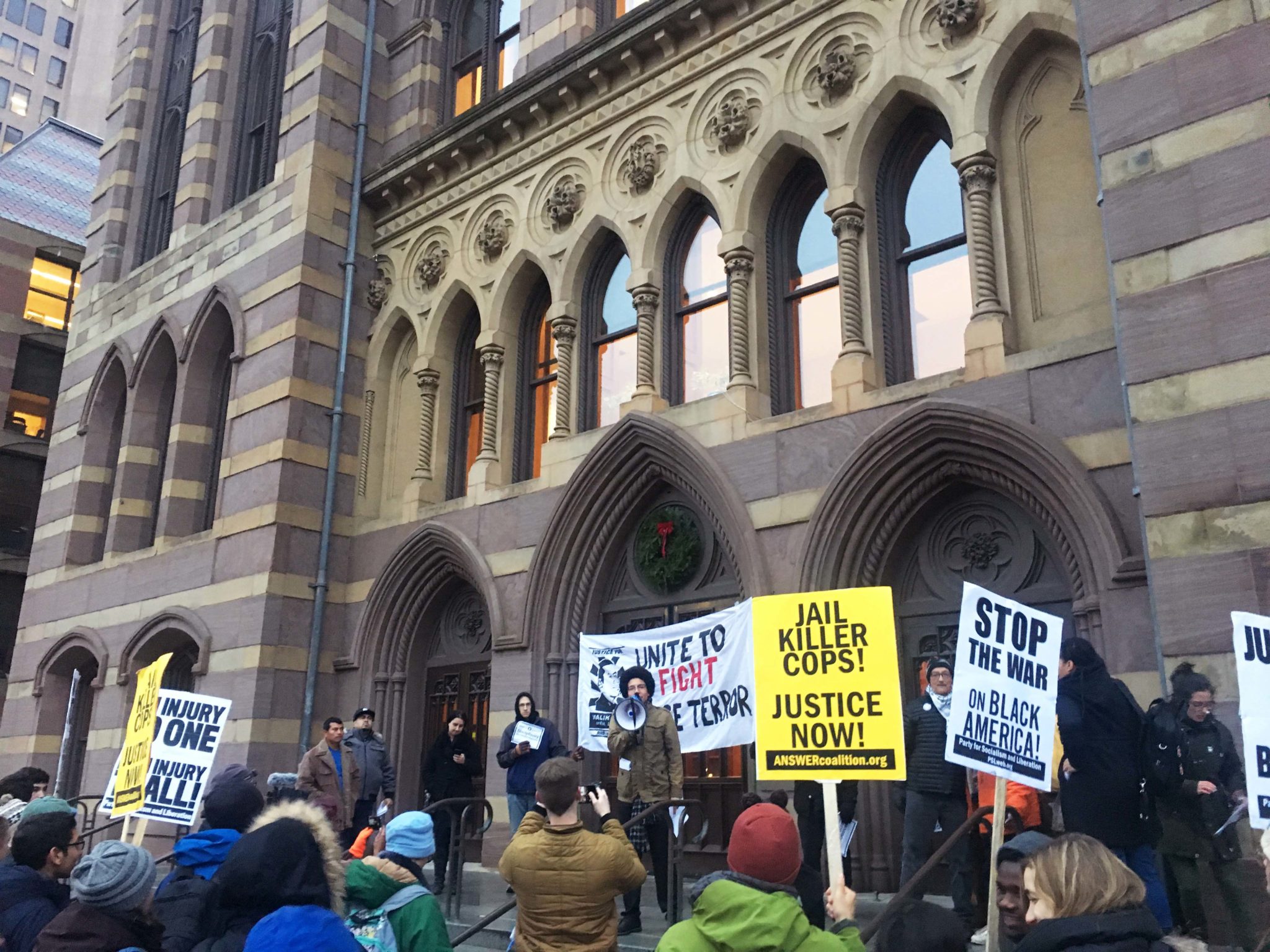
Angela Xiao
Dozens of New Haven residents gathered in the Christ Chapel New Testament Church on Monday night to rally community members to join the fight against solitary confinement.
The evening included a panel consisting of Connecticut state Sen. Gary Winfield, solitary confinement survivor Harvey Fair and Yale Law School professor Hope Metcalf ’96. Panelists spoke about the trauma caused by solitary confinement in Connecticut and proposed ways to pass legislation to end it. Organizer Barbara Fair also played “The Worst of the Worst,” a 2012 film produced by Yale Law students about extreme conditions at Northern Correctional Institution — a local supermax prison.
“How anybody could do this to another human being, and think it’s okay, is just frightening to me,” Fair said to the crowd on Monday. “When the United States knows what they are doing to people and they continue to do it, then there should be a mass lawsuit. They need to pay for how they are damaging people.”
For decades, legislators and activists alike have labeled solitary confinement as inhumane and irreversibly damaging. The film cited Associate Supreme Court Justice Samuel Miller in 1890 saying that even short confinement caused prisoners to fall into a “semi-fatuous condition” while others became “violently insane” or committed suicide. In 2011, then-U.N. Special Rapporteur on Torture Juan Mendez said that over 15 days in solitary confinement caused irreparable psychological damage and should be banned by the U.S. as a technique of torture.
Both the film and speakers focused on Northern Correctional Institution, a maximum security federal prison located in the Connecticut town of Somers. The prison was originally designed to keep the most violent of inmates away from the general population. Individuals sentenced to death row also spent time in solitary confinement before Connecticut abolished the death penalty in August 2015.
However, the population of the prison swelled and now houses prisoners beyond its original design to hold only the most drastic cases. Northern hit 271 prisoners in October 2018. As of October 2019, that number had dropped to 72 prisoners — partly due to legislative pushes from senators such as Winfield.
In the film, Northern inmates described what a typical solitary cell consisted of: a desk located next to the toilet, a bed, a vent that blows in cold air, a small window and a slit in the wall used to pass food to the inmates.
Former inmate Harvey Fair, Barbara Fair’s brother, fought back tears as he recalled his experience in confinement. Fair said that often, he would pray for cockroaches to crawl into his cell — just so he could set eyes on another living being.
“The act is to humiliate you,” Fair said. “It’s to break your spirit. I’ve still got things buried deep in my subconscious.”
Fair said that it was a fallacy that the majority of prisoners who were sent to solitary were unfit to be around other people. He mentioned that many of the prisoners simply wanted to be released or transferred back to other prisons — yet the system was such that misdemeanors could extend an individual’s time in Northern for months or years. While the average inmate left Northern confinement in 10–12 months, some inmates had been there for up to nine years.
Speakers emphasized that solitary confinement was used as a tool to silence inmates who complained of mistreatment and were educated enough to know their rights. Inmates in the film described humiliating strip searches and heavy beatings that included sexual assault. Panelists also mentioned numbing antipsychotics fed to prisoners in order to subdue them, leading to permanent mental health problems upon their release.
“Solitary confinement is gruesome, violent, and it is designed to hide you,” Metcalf said. “One of the reasons that legislation is critical is so that the Connecticut Department of Correction won’t be able to hide in the shadows. It is to say that we, the people, are watching, and you cannot get away with this anymore.”
Winfield told the crowd of his struggle to push legislation ending solitary confinement through the Connecticut General Assembly. A previous bill to end confinement in Connecticut seemed close to passing, he said. Yet after correctional officers spoke of its necessity as a threat to control prison populations, the bill was greatly watered down and settled for setting the minimum age that an individual could be transferred to solitary to 18.
These changes have resulted in a dip in the Northern population, but activists continue to push for total abolition of solitary confinement.
“The biggest challenge is the correctional union that doesn’t want to let people out of their cells because it’s more work,” Barbara Fair told the News. “If you’re locking up everyone in their cells, you don’t have to work very hard. But instead of making people better, that just makes them worse, because you’re caging them like an animal.”
A rally held by Stop Solitary Connecticut will take place on Dec. 10 at the New Haven Free Public Library.
Meera Shoaib | meera.shoaib@yale.edu
Interested in getting more news about New Haven? Join our newsletter!







